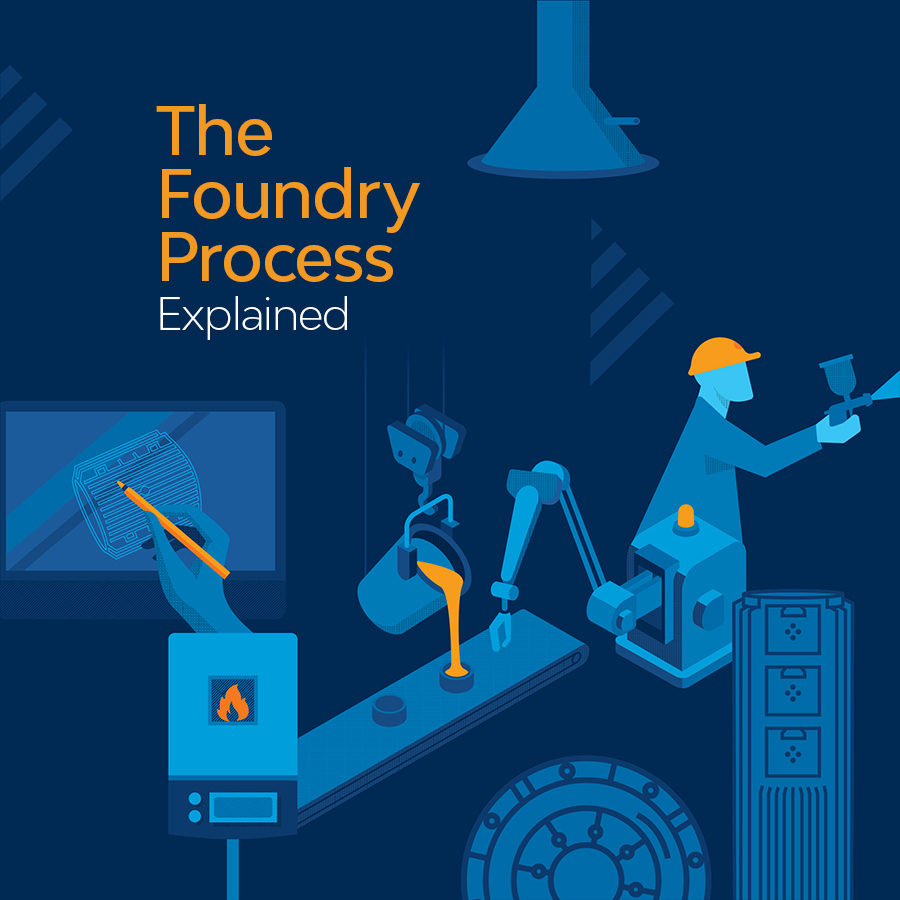Choosing Between Foundry and Forging for Your Project
The Mintly Team
November 11, 2024Did you know the global metal forging market is projected to grow to $157.94 billion by 2032? This shows the increasing demand for strong, reliable metal parts across various industries.
Foundry and forging processes are essential methods for shaping metals. Both processes have distinct advantages and applications. Understanding how they align with your project’s specific needs is essential.
This guide will help you understand the basics and decide the best process for your next project. Read on to discover key factors that influence your choice.
Understanding Foundry Processes
The foundry process steps involve pouring molten metal into a mold. This is where it solidifies into the desired shape. This process is well-suited for creating complex geometries
It can also accommodate a variety of metal types. This makes it versatile for numerous applications.
Exploring Forging Processes
Forging is a process where metal is heated and shaped by applying pressure. The metal is often heated to a high temperature to make it more malleable.
The metal is then hammered, pressed, or squeezed into the desired shape using different forging techniques guide. This method creates strong, durable parts that can withstand high stress.
Factors Influencing Your Decision
When deciding between foundry and forging, consider the following factors:
Desired Properties
Determine whether strength, ductility, or precision is more critical for your application. Forging typically provides superior strength and durability. This is due to the grain flow of the metal.
If you need a part that can withstand high stress or pressure, forging may be the better choice.
On the other hand, foundry processes allow for more complex shapes with high precision. Casting is ideal when you require intricate details. Consider how the material’s properties will impact the performance of your final product.
Material Type
The type of material you are working with can also influence your decision. Forging is often used with metals like steel, aluminum, and titanium.
These materials benefit from the forging process. It increases strength and structural integrity.
Foundry processes are better suited for materials that are more difficult to shape. This includes alloys that require specific casting conditions.
Part Complexity
The complexity of the part is another key factor. Forging is excellent for simpler, more uniform shapes.
However, if your design involves intricate details or complex geometry, foundry casting may be more suitable. The ability to create detailed molds gives foundries an edge in producing complex parts.
Production Volume
Consider how many parts you need to produce. Forging is ideal for low to medium-volume production.
Foundry processes, however, are better suited for high-volume production. This is especially true when dealing with larger or more complex parts.
Consulting with professionals can provide valuable insights tailored to your specific project. You might want to learn more about the IPC Foundry Group in Utah. They offer extensive experience in producing high-quality castings and precision parts.
Foundry and Forging: Making the Right Choice
In the realm of manufacturing, understanding the differences between foundry and forging processes is crucial. Each technique offers unique advantages. Your project’s specific requirements should be guiding your choice.
Consider partnering with industry leaders to help you navigate these options confidently. They can also help you find the right solution for your project.
Speaking about Precious Metals accessibility, you can leverage digital platforms for any Foundry Projects.
If you enjoyed this article, check out more articles on our blog.
All Tags
